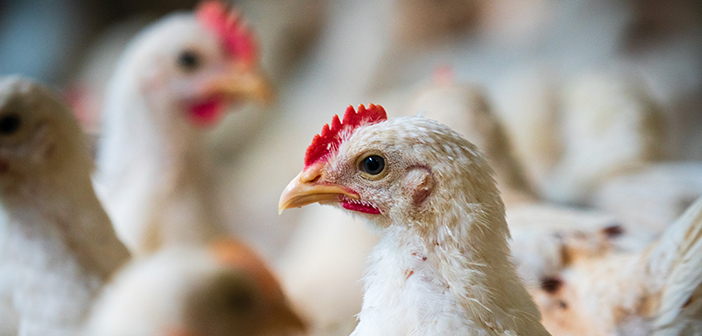Co-op has announced it has converted all of its fresh chicken to a lower stocking density of 30kg per square metre, giving the birds 20% more space than its previous requirements. It has completed the transition 10 months ahead of its original schedule.
The retailer’s previous specification was 38kg per square metre and has involved a multi-million pound investment meaning the retail price on chicken will not increase.
The plan was announced at the Co-op AGM in May 2023, in line with its members’ requests. The convenience retailer had planned to launch the lower stocking density birds by the end of 2024, but has worked at pace with its supplier, 2 Sisters Food Group, and the product is being launched now in all 2,400 stores in the UK, across all fresh chicken varieties including whole birds, breasts, thighs, drumsticks and wings.
The Co-op will now start to switch all its British chicken used in ‘added value’ poultry products such as breaded chicken to the new standards.
Sinead Bell, Co-op commercial director said: “Animal welfare is extremely important to us, our member owners and our customers, and we work very hard to ensure that all the animals in our supply chain are looked after. I’m really proud of our change to reduce stocking density, where we have made a significant investment into poultry welfare to give our chickens more space, leading to an improvement in the natural activity and behaviour, general health and welfare improvements, with a reduction in antibiotic usage. This sits alongside our ongoing commitment that 100% of Co-op protein is sourced from our British farmers.”
Ranjit Singh, owner & President of 2 Sister’s parent company Boparan Holdings, said: “This is great news and I’m delighted that the Co-op has chosen this higher welfare chicken. As a business we’re on a journey to transform our poultry operations to produce happier, healthier birds and this is the latest milestone in that journey.
“We’ve listened very closely to our customers – and also consumers – who tell us they want more options when it comes to higher welfare chicken as well.
“We’ll always produce the full range of products, ranging from organic, free range to standard birds, but as the years go by, more and more people are asking for higher welfare birds that are still competitively priced, and that’s what we’re proud to deliver.
“And we’re not stopping here. The journey will continue as we move more of our estate to higher welfare birds.”
The poultry operation’s agricultural team have been responsible for implementing the gradual change to higher welfare birds – a process which started in 2020 across the estate of 60 higher welfare farms in the UK.
Agricultural Director Nick Davies added: “This is another important step on transforming our estate and it has taken a lot of work from breeders, planners, farmers, processing sites and commercial teams for it to be delivered.
“Our customers have supported us through this journey and are now delivering ranges to their consumers that they’re asking for.”


